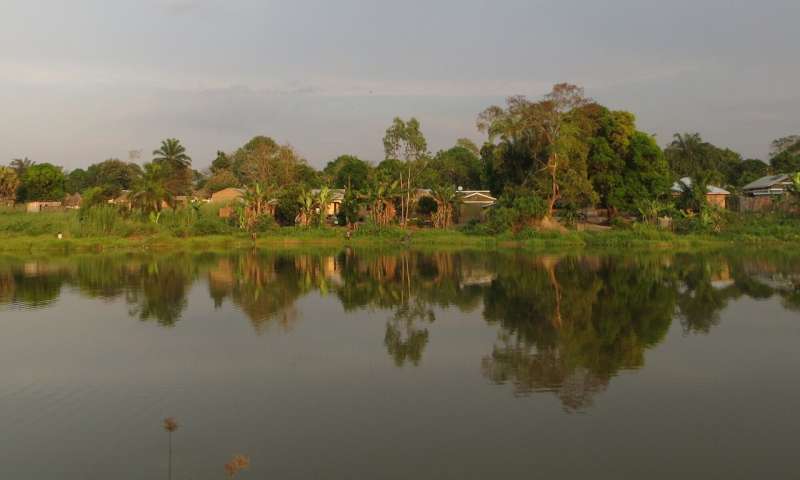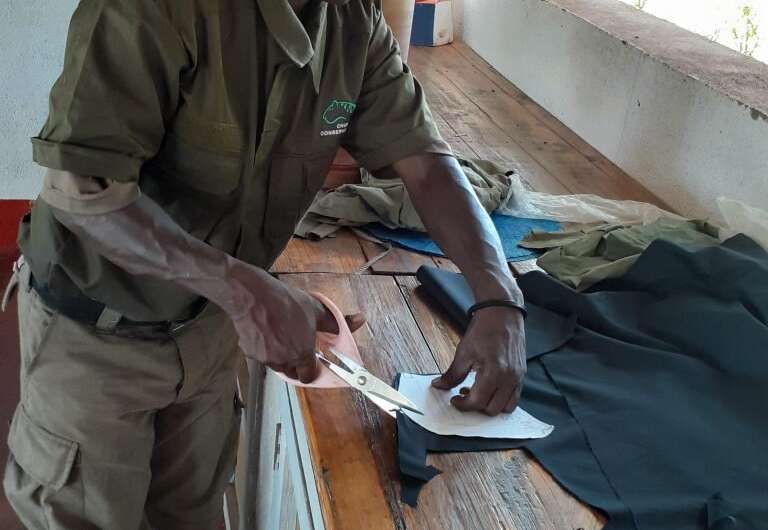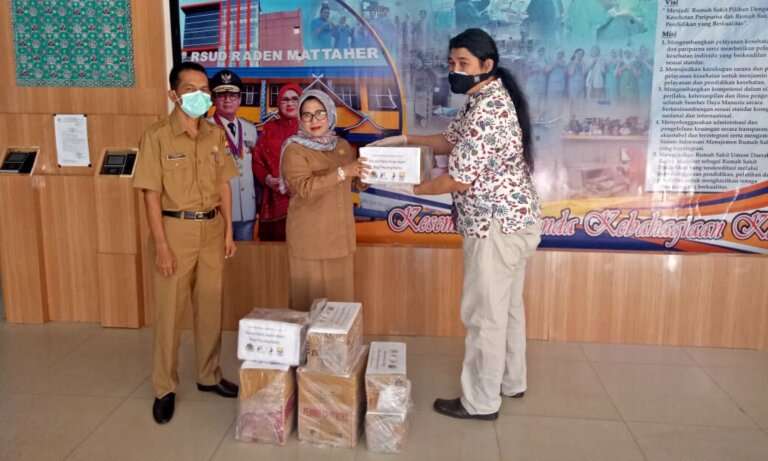Credit: Rob Harris/FFI
The restrictions imposed on a large chunk of humanity as a result of the coronavirus pandemic have necessitated new ways of working and led to thousands of community-based mutual aid groups emerging around the world. And when the coronavirus pandemic struck, Fauna & Flora International (FFI) staff and partners from Asia to Africa also shifted gears.
FFI projects are often in isolated parts of the world, working alongside communities that are extremely vulnerable to the emergence of a new infectious disease. Thankfully, the community-based conservation approaches employed by FFI and its partners provided a ready-made foundation for delivering pandemic-related support over the last few weeks.
Active in Africa
In Cape Verde, FFI's local partner Fundação Maio Biodiversidade (FMB) travels the island once a week to visit each community, check in on their health and needs and, based on these visits, draws up a list of necessary items for distribution. FMB then communicates this information to the municipality and the Red Cross to help them coordinate the delivery, alongside the local police and fishing association, of food baskets and sanitary items. FMB also has two phone numbers for communities to call if they see any emergency wildlife situations such as turtles trapped in fishing nets, illegal fishing, or stranded dolphins. While always available, these lines of communication have become even more valuable during the pandemic. In mid-April the team snapped into action when a villager called one of these numbers to report the stranding of two whales.
Making masks in Chuilexi Conservancy. Credit: Wim Ebersohn
In South Sudan, FFI staff have been traveling into communities to relay information about the pandemic and provide critical safety information. They have also helped deliver "tippy-taps," rudimentary hand-washing stations that ensure communities are able to practice basic hygiene that can minimize the risk of community transmission. Rangers in South Sudan continue to go on patrol, but given the uncertain nature of regional and global food supply chains, rations have been stockpiled for six to eight weeks to ensure rangers can continue to work as normal if there are any disruptions to the supply chain.
A similar effort has begun in the Chuilexi Conservancy in Mozambique; here, communities live in isolation with no mobile phone networks or social media so ensuring reliable and up-to-date information reaches them is critical. In Chuilexi, FFI staff and partners have printed and laminated posters providing information about the virus and affixed them to all work stations, outposts, entry gates to the conservancy and across all the communities. As in South Sudan, FFI and partners have delivered hand-washing stations and also established an initiative to mass-produce face masks for communities.
Initiatives in Asia-Pacific
In Cambodia, outreach work with communities has been adapted, with "focal points" (women leaders within communities), staying in touch with FFI staff, including daily calls between the field staff and the marine team. FFI-trained community wardens are using GPS and other tracking technology to remotely patrol in the terrestrial and marine project areas.
Distributing 200 bottles of honey to paramedics in the Raden Mattaher Hospital, Jambi City. Credit: FFI
The response has been equally impressive in Jambi province in Indonesia. In early April, FFI staff donated food packages to families affected by the economic fallout of the pandemic, and in collaboration with FFI's main partner in Sarolangun district, FMU of Sarolangun, 5,000 liters of disinfectant were delivered to disinfect public facilities. Later in the month the team, again working with FMU, bought 300 bottles of honey from local honey farmers, who had witnessed a collapse in demand because of the crisis, and donated it to paramedics at two local hospitals treating COVID-19 patients. Finally the team delivered PPE including gloves, masks and apron sets to the Governor of Jambi to be distributed to paramedics in Jambi Province, a joint effort between FFI and Kerinci Seblat National Park Office, Natural Resources Conservation Agency of Jambi, Forestry Office of Jambi Province.
Community-based conservation—building relationships and trust to protect wildlife and benefit communities—is at the heart of FFI's approach. This has enabled our staff to adapt quickly and aid people with their immediate needs in this time of crisis. Yet despite the hard work of FFI (focused here on Africa and Asia-Pacific, with similar work taking place across the Americas & Caribbean and Eurasia programs) and its partners, communities are facing real challenges. Many are reliant on tourism and are experiencing a sudden loss of tourism income, which is having a serious impact on livelihoods. The UN has also warned of severe food shortages as a result of the crisis, and this could become especially dangerous for parts of the world dealing with overlapping crises, such as East Africa, which is currently battling a catastrophic locust invasion as well as heavy flooding. And then there is the direct health impact of the virus on countries. "The under-resourced and unprepared national health systems of many African countries will have difficulty detecting its presence and are not equipped to respond," says Wim Ebersohn at Chuilexi Conservancy.
As countries grapple with the best way to ease the measures necessary to suppress the rate of infection, communities will need ongoing support to ensure their needs are met. FFI will continue to bring its expertise to bear to assist communities in every way possible—and will be there to help them rebuild on the other side of this crisis.
Provided by Fauna & Flora International


























